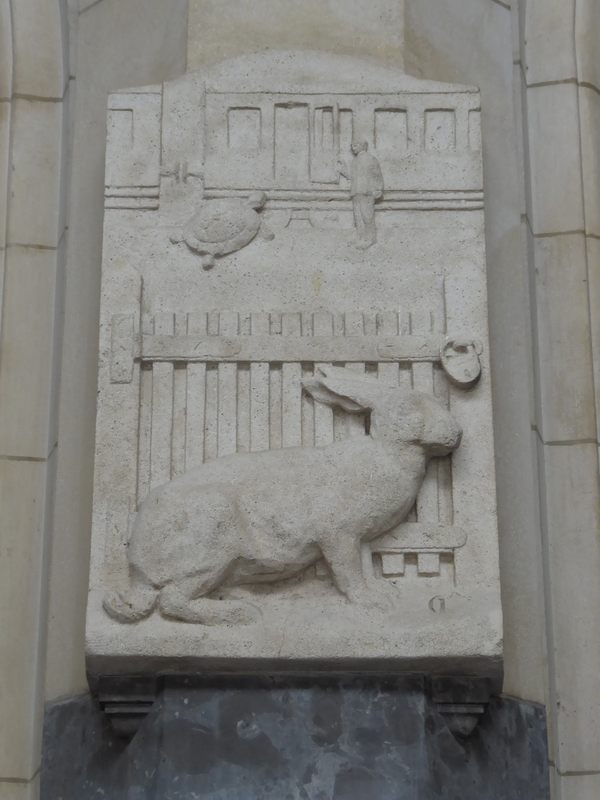Nicknamed ‘The City of Wool’ for its long lasting industry starting in the 12th century, Verviers is a city located between the city of Liège, the Dutch border, and the German border. In 1843, its convenient location along the first international railway line linking the port of Antwerp in Belgium with Aachen in Germany, made it a prime prospect for future development.
In 1897, a proposal for a direct line that wouldn’t require train cars to turn back at a dead end, was launched. The Société National des Chemins de fer Belge asked the architects Charles Thirion and Emile Burguet to design the new station. The plans were completed between 1910 and 1912, but the project was put on hold by the outbreak of the First World War. Finally, the direct line opened in 1917, just in time to facilitate access to Germany.
A temporary railway station was built on the new line and opened in 1920. The architect Thirion died that same year, prompting his son Carlos to continue the project with Burguet. Construction of the current station began in 1925, and was finally completed in 1930. The delay resulted in an interesting final design. The exterior of the station is in Eclectic style, while the interior is in Art Deco.
Upon entering the station, the bas-relief that decorates the central column of the hall is the first thing visitors see. It depicts a hare standing still while facing a padlocked gate. Above it, a tortoise is preparing to enter a passenger carriage, the door of which is being held open by a man. This humorous work by the sculptor Joseph Gérard is a reference to the excessive construction time.

